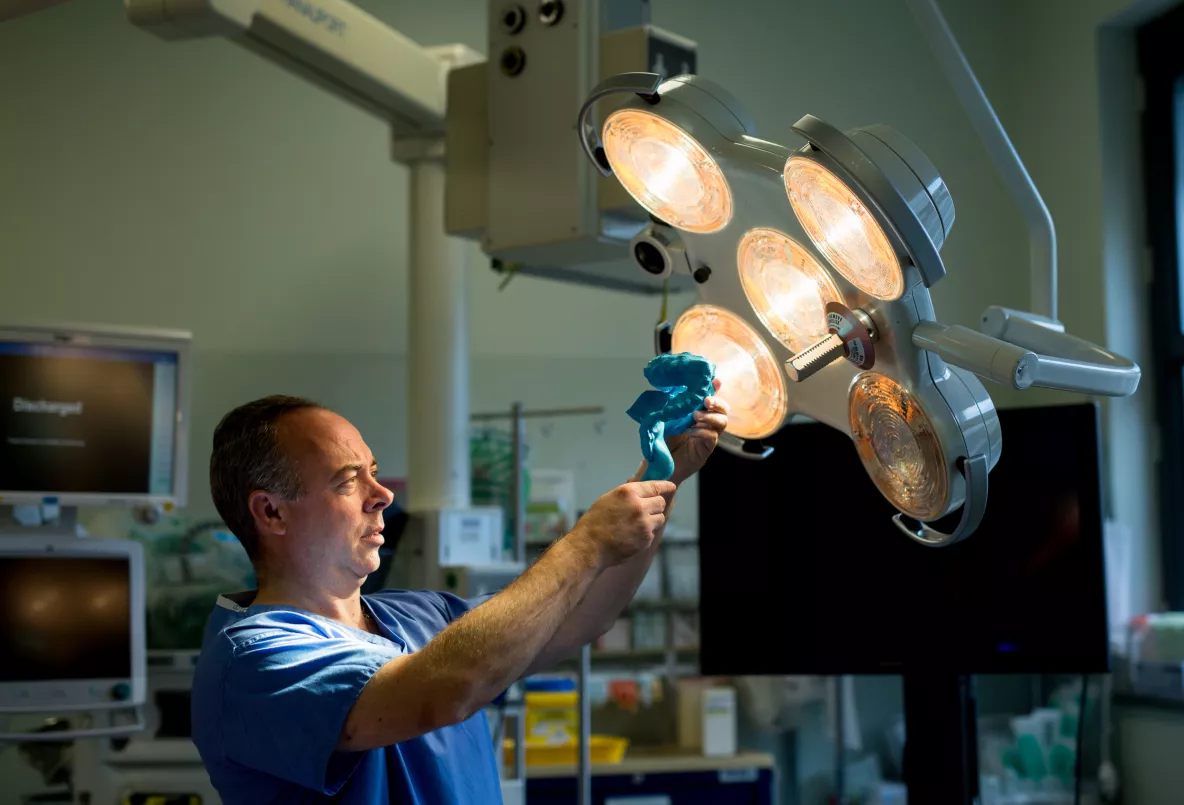
A pioneering University of Limerick professor of surgery has been honoured with the most prestigious honour of the Swedish Surgical Society for his leading role in research that has re-shaped our understanding of the human abdomen.
J Calvin Coffey, Foundation Chair of Surgery at UL’s School of Medicine, whose major discovery led to the reclassification of the mesentery as a new organ, received the Bengt Ihre Lectureship and Silver Medal in recognition of research into the mesenteric organ, which provided an accurate description of abdominal anatomy and led to new treatments for multiple diseases.
The UL Hospitals Group consultant colorectal surgeon travelled to Stockholm in late August for Kirurgveckan, the annual congress of the Swedish Surgical Society, where he presented his lecture, ‘The Mesentery, Our New Organ’, and received the Bengt Ihre Silver Medal.
While he is the named recipient of the award, Professor Coffey said: “I don’t consider it appropriate to receive such an accolade individually. This is an award that recognises the contributions of so many people, in UL Hospitals Group and University of Limerick (UL), as well as our collaborators in the anatomy department at the University of Galway. The honour is a reflection of everybody’s contribution to this work.”
The surgeon emphasised that none of this work would have been possible without the support of the CEO of UL Hospitals Group, Prof Colette Cowan and her Executive team: “That has been the real key. It led to this research and everything that has flowed from it.”
Professor Coffey made global headlines when he and his research team reclassified the mesentery, part of the human digestive system, as a new organ.
The research led to updates to some of the world’s most prestigious medical textbooks, including Gray’s Anatomy, the 2021 edition of which includes updates and a commentary based on the work.
While the impact of the research is educationally and medically ground-breaking, Professor Coffey describes it in the simplest terms: “We now have a new understanding of what we are, and what ‘normal’ is,” he said.
Professor Coffey explained: “The identification of the mesentery opens up the exploration of the human abdomen to everybody. It provides a correct understanding, and clarifies how we’re made up, what our components are, and how they’re organised. That’s very important, because it’s only when you understand what ‘normal’ is that you can understand what "abnormal" or disease is. We can now reinterpret every single abdominal disease in light of that new understanding.”
“Because we can do that, we can generate and develop new treatments, which we have done in the recent past. This has led to the correction of abdominal diseases that clinical and surgical societies were all but stalled on for the past 70 or 80 years,” he added.
The Bengt Ihre Lectureship and Silver Medal honours are the latest accolades in a career that has seen Prof Coffey and his team celebrated locally, nationally and internationally for research and surgical innovation. As part of this work the introduction of Robotic Surgery in UHL has underlined the hospital’s status as a centre of surgical excellence.
Previous recipients of the Swedish honours include Professor Bill Heald OBE, and the late Professor Wendy Atkin OBE. Prof Heald revolutionised the treatment of rectal cancer worldwide. Prof Atkin was a Professor of Gastrointestinal Epidemiology at Imperial College London. She revolutionised the detection, diagnosis and treatment of cancer internationally through clinical trials that showed bowel cancer could be prevented with a five-minute test.
For Professor Coffey, the main prize is in the benefit for patients, in the Mid-West, nationally, and internationally.
“I’m very proud that work on the mesentery, all done in Limerick, in UL and UL Hospitals Group, and in collaboration with our colleagues in Galway, has led to the development of new treatments for surgical diseases, that patients are benefiting directly, and that the world of surgeons and scientists is adopting the new understanding of the abdomen,” Professor Coffey stated.